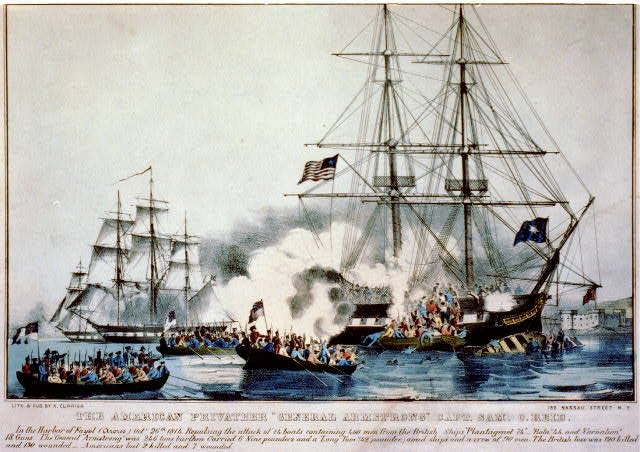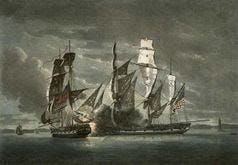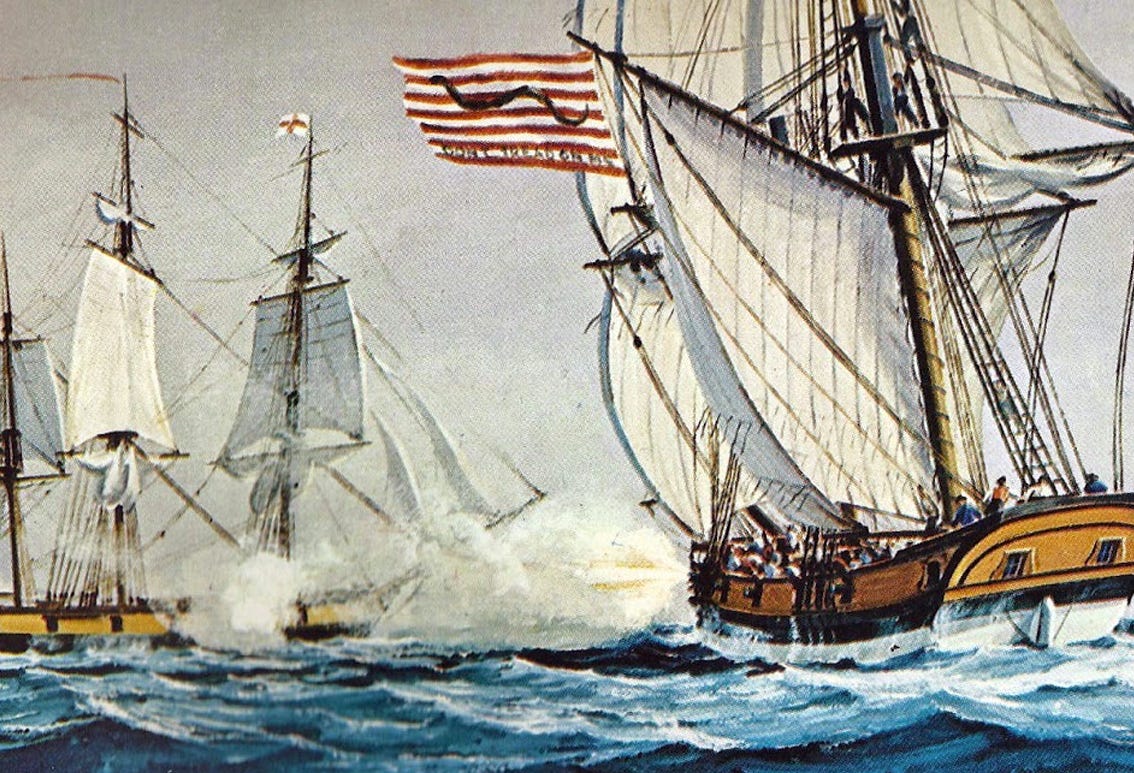
The Russian invasion of Ukraine, which began on February 24, 2022, has caused widespread international condemnation of the Russian government. This condemnation has come not just in the form of empty words but also has teeth in the form of both weapons transfers to the Ukrainian government and sanctions on the Russian government, and as a result, Russia has become the most sanctioned country in the world. As governments around the world scramble to enforce the sanctions that they have imposed, some US lawmakers are looking for ways to marketize sanctions enforcement mechanisms. In particular, Rep. Lance Gooden of Texas has introduced H.R.6869, a bill in the US House of Representatives that would “authorize the President of the United States to issue letters of marque and reprisal for the purpose of seizing the assets of certain Russian citizens, and for other purposes.” So, does this mean that you can grab your bros, some extra firearms that you have lying around, and a Zodiac boat, and head out to the harbor and get yourself a war prize, today? As with anything involving the US Congress, it is more complicated and less cool than that.
(Twitter users express excitement at the opportunity to engage in legalized piracy)
The US legal system is built around the US Constitution, which was ratified on June 21, 1788. This document provides the framework for the US government and specifically outlines what powers the government has, and which of the three branches (executive, legislative, and judicial) of the government has those powers. This system was designed with the notion in mind that different branches of government with different powers would provide checks and balances on the exercise of power, with no one branch of government becoming so powerful that it could dominate the others. Notably, the US legislature (the House of Representatives and the Senate together) is given its power in Article I of the Constitution, with Article I, Section 8 being the section that provides the largest explication of the legislature’s powers. Among these powers are the power to lay and collect taxes, raise debt, regulate commerce with foreign nations, punish pirates, declare war, and issue letters of marque and reprisal.
Letters of marque and reprisal are official government licenses given to private entities to “engage in reprisals against citizens or vessels of another nation.” Early in American history, the US government supplemented its relatively weak navy by contracting with privateers in times of war. Privateers are often described as legal pirates and would engage in the same sorts of attacks against enemy merchant shipping that pirates would, with the difference between the two being that privateers had permission from a government to do so, but pirates did not. This permission was in the form of a letter of marque.

As other articles have noted, the 1856 Paris Declaration Respecting Maritime Law largely stopped the use of privateers in times of war. However, as the US government is wont to do, it did not sign or approve the Declaration. As a result, the US government currently has both the power to use privateers if it so chooses (through the US Constitution ) and is not prevented from exercising that power by any other law (under the US Constitution, if the President signs a treaty and the US Senate approves the treaty, then that treaty has the effect of a law passed through both houses of congress and signed by the President). However, if the US government wants to use privateers to do its dirty work by granting certain scallywags letters of marque, then the US congress must create a law that grants those letters. That law must first start as a bill in the House of Representatives or the Senate, pass through the originating chamber, pass through the other chamber, and finally be signed by the President in order to become a law. As it stands, H.R.6869 is still only a bill in the House of Representatives, and in order to become a law, it has a long way to go.
Furthermore, in the event that the US government did pass a law granting letters of marque, or otherwise created a system delegating that power to another government agency, there would likely be numerous other US laws, regulations, and official policies that would apply to the grantees of those letters. These laws and regulations are currently aimed at private security contractors working with the US government and require said contractors to maintain the following: personnel records, processes for keeping track of weapons, processes for reporting events like the negligent discharge of weapons, and compliance with professional management standards among numerous other requirements.
Additionally, based on the context of the clause that enables Congress to create laws granting letters of marque, we should consider the possibility that the granting of letters is an act of war, or if the granting of letters is not an act of war that the exercise of those letters is. If the granting or exercise of letters of marque is an act of war against Russia, then the granting of letters would be a significant escalation beyond sanctions as they currently stand and could have serious geopolitical repercussions.

So, despite much enthusiastic discussion about the possibility of becoming a legalized pirate raiding the yachts of Russian oligarchs, the laws and documents legitimizing that conduct aren’t in place yet, and any raiding wouldn’t be legalized piracy, but just regular piracy. Furthermore, even if the laws and regulations were put into place, any would-be buccaneers would likely need to hire a team of lawyers to ensure that they were in compliance with the US government’s onerous legal standards for contractors.
Yet, potential swashbucklers shouldn’t lose too much hope, as there seem to be several US lawmakers who are champing at the bit over letters of marque. Finally, even if a law granting letters isn’t passed in time for this crisis, it may happen in time for the next one, as Congressman Gooden is just the most recent congressional representative from Texas to propose that the US government exercise its power to grant letters of marque, and if I know anything about Texas, he won’t be the last.





I'm glad you referred to PMC's as within the first few sentences I thought of Blackwater and Aegis!